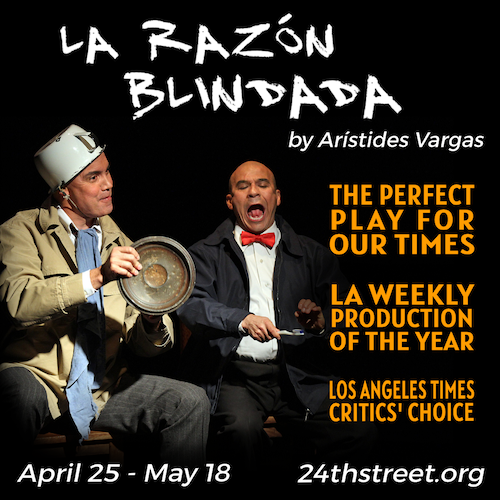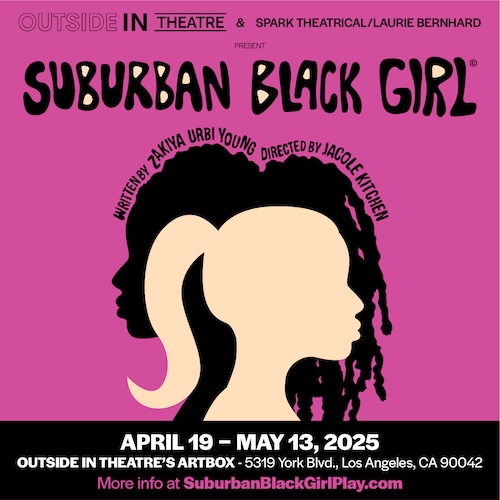Nina Simone: Four Women
Reviewed by Deborah Klugman
South Coast Repertory
Thru Oct.23
A young Nina Simone never aspired to be a singer. Born Eunice Kathleen Waymon, the sixth of eight children, she studied classical piano as a child, her training paid for by the white employer of her mother, a Methodist minister who worked part-time as a housekeeper. Later she attended Juilliard on funds raised by people in her hometown of Tryon, North Carolina, and in 1951 applied to the prestigious Curtis Institute of Music in Philadelphia — but was rejected (in a brutal, unmistakably racist message from the Establishment), despite her overwhelming talent. With no money and needing to support herself and her family, Simone began playing piano in clubs in Atlantic City — then was told she would have to sing if she wanted to keep her job. She complied, and the career of an American musical legend was launched.
In those early years Simone eschewed politics in her music, even as friendships with artists and intellectuals like James Baldwin and Lorraine Hansberry heightened awareness of her responsibility as a Black artist. When the 16th Street Baptist Church in Birmingham, Alabama was bombed in 1963, killing four little girls, Simone became radicalized. The bombing, along with the assassination of Medgar Evers three months earlier, prompted her to write “Mississippi Goddam,” the first of many civil rights songs that were to carry her to the forefront of the Civil Rights Movement. The song was written in under an hour — “it erupted out of me quicker than I could write it down,” she was to say later.
Directed by Logan Vaughn, Christina Ham’s play, Nina Simone: Four Women, is set at that approximate moment when news of the bombing is broadcast over the radio. An agitated Nina (Chibuba Osuala) is laboring over her song when she’s interrupted by Sarah (Jennifer Leigh Warren) the first of three spirits who materialize in the living room of her upper-middle-class home (scenic design Jack Magaw). As realized here, Sarah represents the sort of conservative church-going woman who’s nurturing and kind but accepting of oppression, and in her dialogue objects to radical political action. Appearing later are Sephronia (Arie Bianca Thompson), who’s been active in the protests, and Sweet Thing (Meredith Noel), a woman who trades on her sex to survive.
These three characters, along with the volatile Nina, are loosely emblematic of the four individuals in the lyrics of “Four Women,” Simone’s song released in 1966. In both the song and this script, the hue of their complexions is an issue; Sephronia, for example, is pointedly a light-skinned mulatto. This reflects Simone’s personal experience as a dark-complected person, less valued both without and within the African American community, where (for some) having lighter skin is seen as more desirable and deserving of status.
Interspersed with vocal renderings of numbers like “I Love You Porgy” and “Brown Baby,” (as well as “Mississippi Goddam” and “Four Women”) Ham’s play aims to capture that epiphanic juncture in Simone’s life in which she transforms from a singer of soul (already nothing to sneeze at) into a politically astute voice for her people. But what’s likely intended as a dramatization of the heart and mind of this intriguing artist unwinds instead as a rather dull polemic; the four main actors argue and critique each other’s perspectives — Sarah is reactionary whereas Sephronia is on the frontline of the protests — but there’s almost no detail or dimension to their characters, no back story — with, perhaps, the partial exception of Nina, in any case, a historical figure and the topic of the play.
This leaves the performers stranded. As Nina, Osuala brings a requisite intensity to the role but she, along with the others (who have even less to work with), are constrained by the stilted text.
Other aspects of the production are undermining as well. Christine A. Binder’s lighting design is such that, seated in the rear of the medium-sized theater, I could not make out the performers’ faces. Costume designer Jessica Ford dresses Osuala in a dark dress for much of the play; this makes her features even harder to discern. Yee Eun Nam’s projections blend too readily into the pastel backdrop of the set. All these factors detract from the drama.
What works are the songs, arranged and composed by musical director Richard Baskin Jr (who also assumes the non-speaking role of Simone’s accompanist brother Sam) and artfully sung by Osuala and other members of the ensemble.
South Coast Repertory, Emmes/Benson Theatre Center, 655 Town Center Drive, Costa Mesa. Opens Fri., Oct. 7: Tues.-Sat., 7:45 pm, Sat.-Sun., 2 pm; Sun., Oct. 23, 7:45 pm; thru Oct. 23. https://www.scr.org/plays/productions/22-23-season/nina-simone-four-women/ Running time: approximately 85 minutes with no intermission












